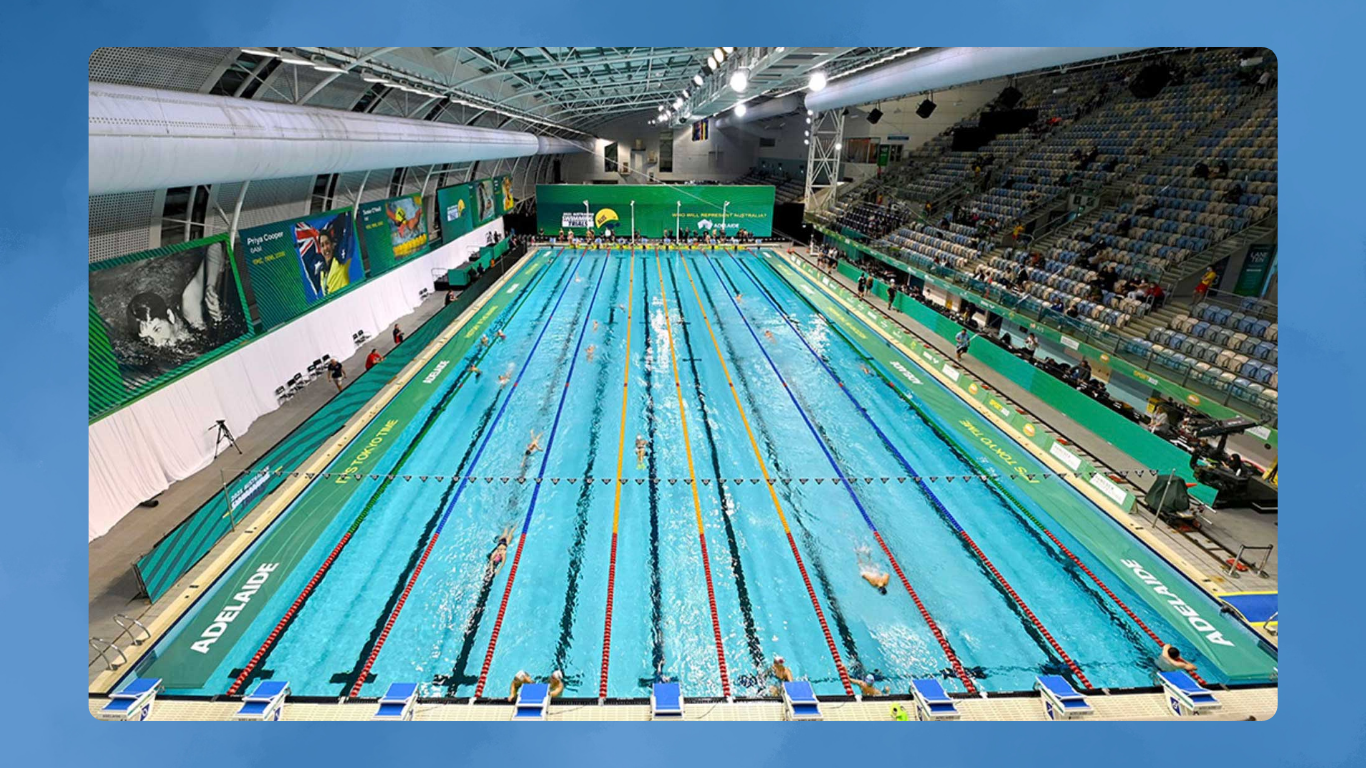An Adelaide pool has become the first in South Australia to use artificial intelligence (AI) to prevent drownings, setting a new benchmark in aquatic safety. The Elizabeth Aquadome’s innovative approach equips lifeguards with smartwatches, providing real-time alerts about swimmers in distress and giving them an extra pair of eyes on the pool deck.

Joel Perricone from BlueFit Group explains the impact of the technology: “If someone is underwater for more than 30 seconds, the cameras send an alert to our lifeguards’ watches. This technology has the potential to save lives. It’s about how quickly and effectively we can respond.”
Strategically placed cameras ensure there are no blind spots in the pool. The AI system continuously monitors the area, detecting unusual splashing or movement that may indicate a struggle. When it identifies someone in trouble, it sends an alert with the swimmer’s exact location and a photograph, allowing lifeguards to quickly identify and assist.
Lifeguard Riley Giersch highlights the added assurance this system provides: “We can’t be everywhere at once, and this technology ensures that the areas we’ve just patrolled or are moving away from remain safe.”
Since the introduction of the AI technology, lifeguard response times have dramatically improved, dropping from an average of 86 seconds to less than 25 seconds. The Lifeguard On Watch system is already in use at 15 other aquatic facilities across Australia, with 10 more planning to adopt it later this year.

Looking to the future, there are ambitious plans to extend AI monitoring to beaches, though this presents unique challenges. Installing cameras effectively around beach areas and managing the dynamic nature of ocean water are significant hurdles. Perricone noted, “The challenge would be getting cameras positioned effectively around beach areas and managing the movement of the water.”
The implementation of AI at the Elizabeth Aquadome marks a major advancement in pool safety. This blend of cutting-edge technology and human oversight shows the lifesaving potential of AI. As the technology continues to evolve, its role in ensuring the safety of swimmers in both pools and at beaches is set to expand, heralding a new era of enhanced vigilance and rapid response in aquatic environments.

Subtly charming pop culture geek. Amateur analyst. Freelance tv buff. Coffee lover
